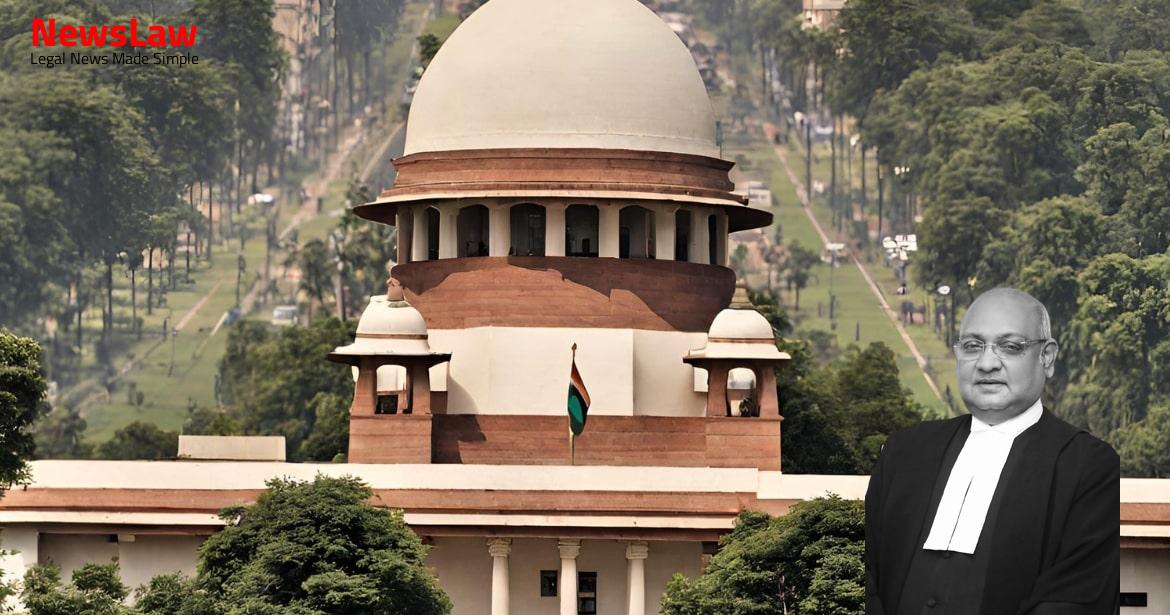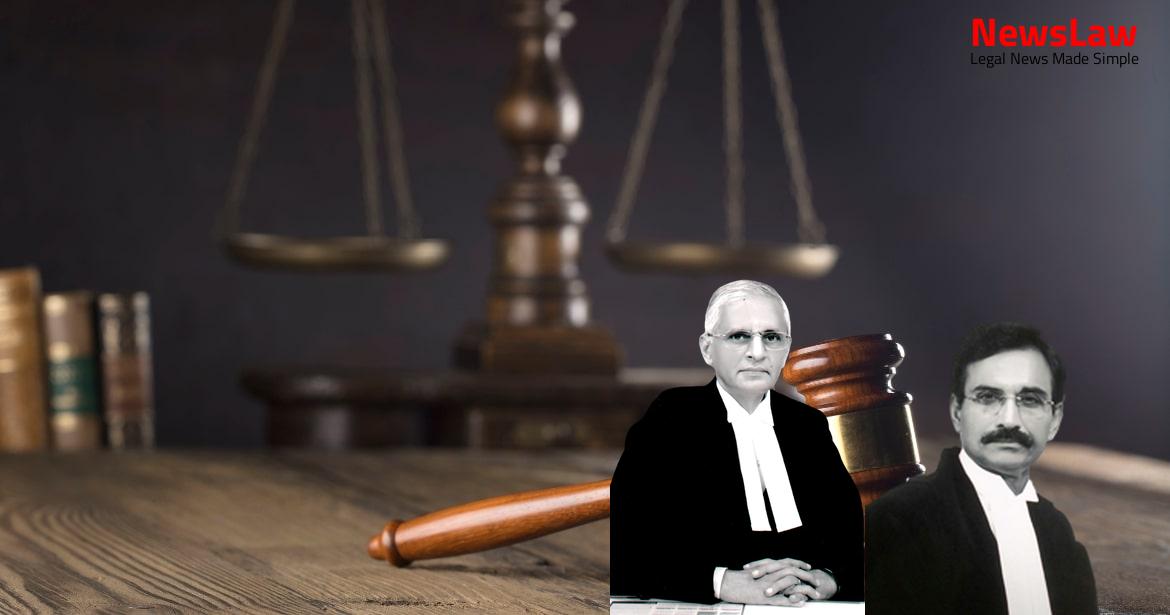In the legal case regarding the death of a Manipuri call centre employee, the Court has directed the transfer of the investigation to the CBI. The appellants, cousins of the deceased, have pushed for this transfer in their pursuit for justice. The Court’s decision aims to address the doubts and bring the real culprits to justice. Stay tuned for updates on the investigation process.
Facts
- Polygraph test conducted on suspects Raj Kumar and Amit Sharma on 26.12.2013, inconclusive.
- Deceased was a 25-year-old girl from Manipur working in a call centre in Delhi.
- Investigation transferred to Crime Branch, Malviya Nagar on 01.06.2013, Section 302 IPC added later.
- Deceased’s boyfriend was absconding and did not join investigation.
- Post-mortem conducted on deceased with inconclusive cause of death.
- Initial FIR registered under Section 306 IPC, later converted to Section 302 IPC.
- Blood spatters and smashed face of deceased noted during initial investigation.
- Writ Petition filed for CBI investigation, final report agreed to be withdrawn for further investigation.
- Appellants are cousins of the deceased.
- Body of deceased discovered on 29.05.2013 in rented accommodation in Chirag Delhi.
- The High Court did not find sufficient evidence to incriminate the landlord and his brother-in-law in the crime.
- The High Court emphasized that the mere fact that the landlord’s premises had access to the deceased’s room did not prove their guilt.
- The appellants have approached the Court requesting a CBI investigation into the case.
- A Special Investigation Team (SIT) was appointed by the Court to oversee the investigation.
- The SIT submitted two status reports in July and October 2019 but the investigation did not yield conclusive results.
- The SIT’s investigation suggested that the deceased had committed suicide by consuming poison, although the reports did not confirm the presence of poison.
- The SIT concluded that the investigating agencies conducted the investigation without bias.
Also Read: State vs. Deputy Director of School Education: Transfer Order Reversal
Arguments
- Mr. K.M. Nataraj, learned Additional Solicitor General of the Court, has stated no objection to handing over the investigation to the CBI.
- This indicates his fairness and willingness to consider alternative investigative agencies.
- The Court may consider transferring the investigation to the CBI based on this submission.
Also Read: Analysis of Suspension Order under PC&PNDT Act
Analysis
- The crime scene indicates blood spattered on the floor and a bed sheet soaked in blood, suggesting a violent incident.
- Initial observations do not point towards the involvement of specific individuals in the crime.
- No clear motive for suicide by a young woman of 25 years has been identified.
- Lack of substantial evidence to directly implicate Raj Kumar and Amit Sharma in the crime.
- The Crime Branch has already conducted extensive investigations into the case.
- Request for CBI intervention is deemed unnecessary at this stage as existing efforts have been exhaustive.
- The family of the deceased seeks justice through effective investigation rather than immediate transfer to CBI.
- Allegations presented thus far lack concrete evidence to support criminal charges.
- The entry point of the victim’s room by the landlord and brother-in-law does not establish them as suspects.
- The deceased’s relatives from Manipur face logistical challenges but maintain faith in the legal process.
- CBI involvement is reserved for exceptional circumstances and not for routine allegations without substantial backing.
- The death is classified as homicidal, reinforcing the need for apprehending the perpetrators.
- The appellants from Manipur persist in their claims of rape and murder, accusing the police of concealment.
- The Court emphasized the responsibility of the prosecution agency to effectively carry out criminal prosecutions and ensure perpetrators are duly punished.
- Courts must address genuine grievances brought by ordinary citizens to maintain public trust in institutions.
- Unresolved crimes erode public trust in law and order institutions, highlighting the importance of fair and effective criminal investigations.
- The Court mentioned the need for sparing use of the power to transfer investigations, while ensuring complete justice and no violation of fundamental rights.
- The Court emphasized the importance of police fulfilling public expectations by diligently investigating crimes, especially in cases of murder and serious violations.
- The Court highlighted the wide powers it holds to direct further investigations, even if a chargesheet has been submitted by the prosecuting agency.
- A specific case was cited where the Court allowed a Writ Petition for CBI investigation in a politically motivated murder, emphasizing the need for credibility and justice.
- A seminal judgment was referenced where the circumstances empowering Constitutional Courts to issue directions for CBI inquiries were discussed.
- Case needs to be handed over to CBI for proper investigation.
- Goal is to remove doubts in the minds of the appellants.
- Aim is to bring the real culprits to justice.
Also Read: Withdrawal of Prospective Resignation: Legal Analysis
Decision
- The case is being transferred from SIT to CBI.
- All pending applications are disposed of.
- The appeal is allowed, directing CBI to conduct an enquiry.
- The Delhi High Court’s order dated 18.05.2018, rejecting the appellants’ prayer to transfer the investigation to CBI, is set aside.
- SIT will hand over all relevant papers and documents to CBI for investigation.
- CBI is directed to conduct a thorough investigation and submit its report or charge sheet expeditiously to the concerned court.
Case Title: AWUNGSHI CHIRMAYO Vs. GOVERNMENT OF NCT OF DELHI (2024 INSC 249)
Case Number: Crl.A. No.-001771-001771 / 2024



